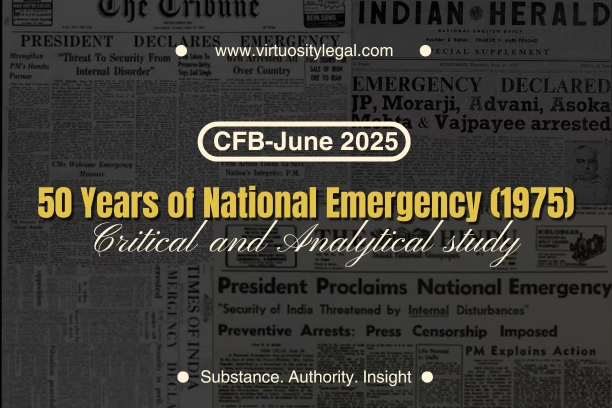emergency
-

India’s Slow March Back to ADM Jabalpur
50 Years Later, What Have We Learned? This year marks the 50th anniversary of the National Emergency imposed by Prime Minister Indira Gandhi under Article 352 of the Indian Constitution. This 21-month period is often touted as the “blackest era” in India’s democratic history. During this phase, several constitutional provisions and laws such as the…
-

“Scandalising The Court”: A Colonial Relic In The 21st Century
In the world’s largest democracy, the judiciary occupies a revered position as the sentinel of constitutional values. Yet, its enduring authority to punish for criminal contempt, particularly through the archaic and amorphous doctrine of “scandalising the court”, invites renewed scrutiny in 2025, a year marked by both institutional introspection and public unease. Under Section 2(c)(i)…
-

Constitutional Disruptions And Institutional Amnesia: A Study Of India’s Democratic Fragility
Abstract “If I see the constitution being misused, I shall be the first to burn it.” This is a well-renowned quote from Dr. B.R. Ambedkar, which incorporates the essence of possible misuse of the constitution and the chances of constitutional breakdowns. India is widely accepted as the largest among democracies and a country that incorporates…
-

Implications Of National Emergency On The Enforcement Of Article 19: A Constitutional Analysis
The Indian Constitution, the supreme regulatory document in the country, provides its citizens with fundamental rights under Part III. Fundamental rights are a set of basic human rights that are essential for a person to live his/her life with dignity. While the constitution provides the citizens with these rights it also has made certain provisions…
